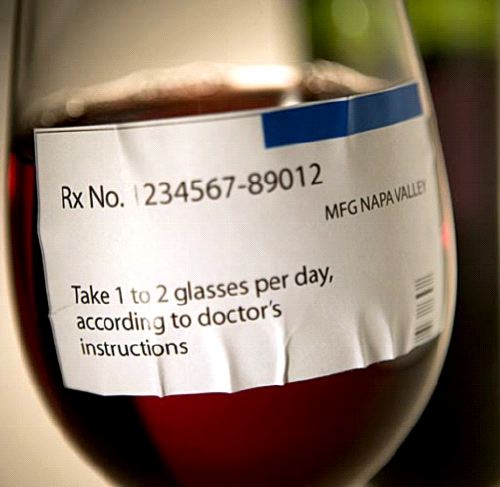Wine is great to enjoy with friends cut lose at parties but did you know that apart from catching buzz wine is super drink? It’s no question that people who drink wine are naturally healthier than people who drink other alcohols. It’s a shame wine doesn’t have it’s own group on the food pyramid yet. Here are just the top 5 health benefits of wine that will make your life better.
1. It makes you smarter!
There is a powerful antioxidant in red wine called Resveratrol. It fights off cell damage to make your brain stay sharper for years to come.
2. Screw the gym, drink wine! *sometimes*
This powerful antioxidant called Resveratrol is also good for your heart. It can give you muscle strength and improved physical performance because it’s the same enhancements your heart gets from working out. One thing to stress though is that wine is limited. So don’t cancel your gym membership for a wine membership.
3. Aids in the treatment of cancer.
Scientist at the American Cancer Society have yet to give conclusive evidence of why this works but wine contains another super antioxidant called Quercetin that fights cancer cells. The antioxidant causes natural cell death in most cancers, especially colon cancer.
4. Makes you live beyond your years
People who drink red wine were shown to have a 34 percent lower mortality rate than people drinking beer and hard liquors such as whiskey, vodka, and tequila. This was a 29 year study. Researchers believe it’s because the polyphenols in the wine which protect against the development of chronic disease.
5. Lowers risk of heart attack and stroke.
What gives red wine its color is a tannin called Procyanidins which helps protect against heart disease. Resveratol also removes blood clots, which is the primary cause of coronary disease. Drinking red wine daily can reduce blood clot related strokes by a whopping 50 percent!
Source: Shay N, Okla M, Kang I, Kim DM, Gourineni V, and Chung S. Ellagic acid modeulates lipid accumulation in primary human adipocytes and human hepatoma Huh7 cells via discrete mechanisms. The Journal of Nutritional Biochemistry. 2015.
